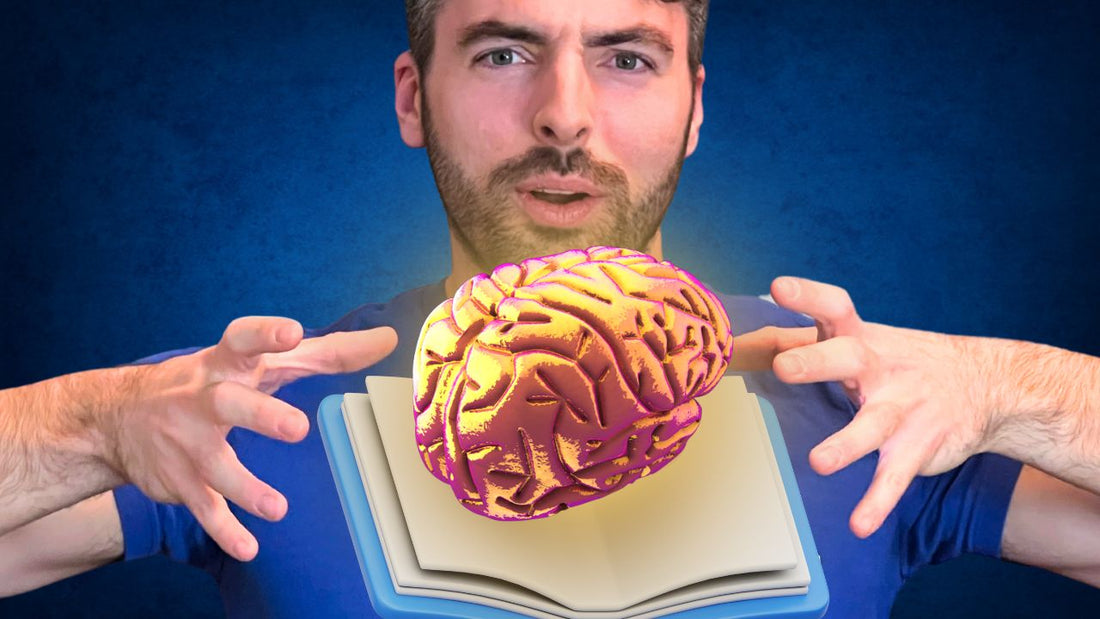
Techniques to Boost Your Memory
Share
Do you often find yourself forgetting names, appointments, or what you were supposed to say during a conversation? Don't worry, you're not alone in this situation. In this article, I'll reveal how to make the most of your memory, with practical and fun techniques that you can start applying right away.
The Truth About Memory That No One Tells You
First of all, let's dispel a myth: there is no such thing as a perfect memory . We all, in one way or another, have what we might call a selective memory . Some remember birthdays, others streets, still others names of movies (like me, a very useful skill... SPOILER: it's of no use at all! ).

But it's not about innate talent. As Mike Tyson said, "talent is a lazy man's excuse." In reality, what we call "good memory" is often the result of habits and personal interests developed over time.
The Brain: A Brilliant (But Sometimes Annoying) Filter
Our brain acts as a sophisticated filter, selecting the information to be retained based on two main criteria:
- Utility : We tend to remember what our brain deems important for our survival or well-being.
- Interest : Information related to what we are passionate about is more easily stored.
This natural selection of information allows us to function effectively in the world, without being overwhelmed by irrelevant details.
Hyperthymesia: When Remembering Everything Becomes a Problem
There is a rare condition called hyperthymesia (or hypermnesia) that causes the ability to vividly and vividly remember every moment of your life. Sounds like a superpower, right? In reality, it can be extremely problematic .
People with hyperthymesia report difficulty with daily activities, as the huge amount of stored memories tends to "overflow," interfering with concentration and normal cognitive functions.

This makes us understand how important our brain's ability to filter information is, allowing us to forget what is not essential.
Techniques to Boost Your Memory
Now that we have clarified how our memory works, let's see some practical techniques to improve it. These "tricks" come directly from our friend Cicero and are based on the concept of memorization through images.
1. The Repeated Name Trick
How many times have you met someone and, after a few seconds, you have already forgotten his/ her name? Here is a simple but effective trick:
- Listen carefully to the name when it is introduced to you.
- Repeat it out loud immediately after the introduction: "Nice to meet you, Laura !" Just replace Laura with the name of the person you're talking to.
This method not only helps you memorize the name, but also shows the person that you paid attention, creating a positive first impression.
2. The Visual Association
This technique uses the power of our imagination. Here's how it works:
- Take the person's name.
- Identifies a distinctive physical or behavioral characteristic.
- Create an absurd mental image that combines the name and the characteristic.
For example, if you meet a Philip with long hair, you might imagine him climbing his hair like a rope (Philippines - thread). The more extravagant the image, the easier it will be to remember!
3. The Mental Notes Technique
This technique is especially useful for remembering a large amount of information, anecdotes, or stories that you want to tell someone later. It's like creating a mental notebook where you can easily write down everything you want to remember. Here's how it works:
- Imagine a familiar room in your mind. This will be your "mental note room."
- For each piece of information, anecdote, or story you want to remember, create a vivid image and place it in a specific spot in the room.
- Associate each image with a particular object or location in the room.
- When you want to remember the information, mentally "walk" around the room, looking at the images you have placed.

For example, if you want to remember to tell a friend that Peter dropped out of college to become a barber, you might imagine Peter shaving someone's head near the desk in your mental room.
This technique allows you to "write down" a lot of information quickly and easily, without the need for pen and paper. It is particularly useful when you want to remember a series of anecdotes or stories to tell someone orally, perhaps during a dinner or a meeting.
If this technique has piqued your curiosity and you want to learn more, I have written a detailed article on the memory palace . There you will find a complete explanation of this powerful mnemonic technique and how to best use it.
"But I Have No Imagination!"
If you are thinking, "My imagination sucks, I will never get it right," stop right now! Remember: talent is a lazy man's excuse . The ability to create mental images is a skill that can be trained and improved with practice .
At first it may seem difficult or artificial, but over time it will become a habit and you will be faster and faster at creating new mental images.
Conclusion: Your Memory is a Muscle, Train It!
These are techniques that you can use in any situation, even when you can’t physically take notes. With practice, they will become more and more natural and effective.
They are not only useful in everyday life, but they can also revolutionize the way you study. If you are a student or simply love learning new things, I have created a study method based on these mnemonic techniques . In my dedicated article, I explain step by step how to apply these tricks to memorize complex concepts and prepare for exams effectively. Don't miss this guide if you want to turn your learning around!
Remember: your memory can improve, you just need to practice it a little! Start practicing these techniques today and prepare to amaze yourself and others with your newfound memory skills.
And you, which technique will you try first? Have you already tried something similar? Share your experience in the comments! I will be happy to answer your questions and hear your progress.
Greetings from Dr. Luca.

